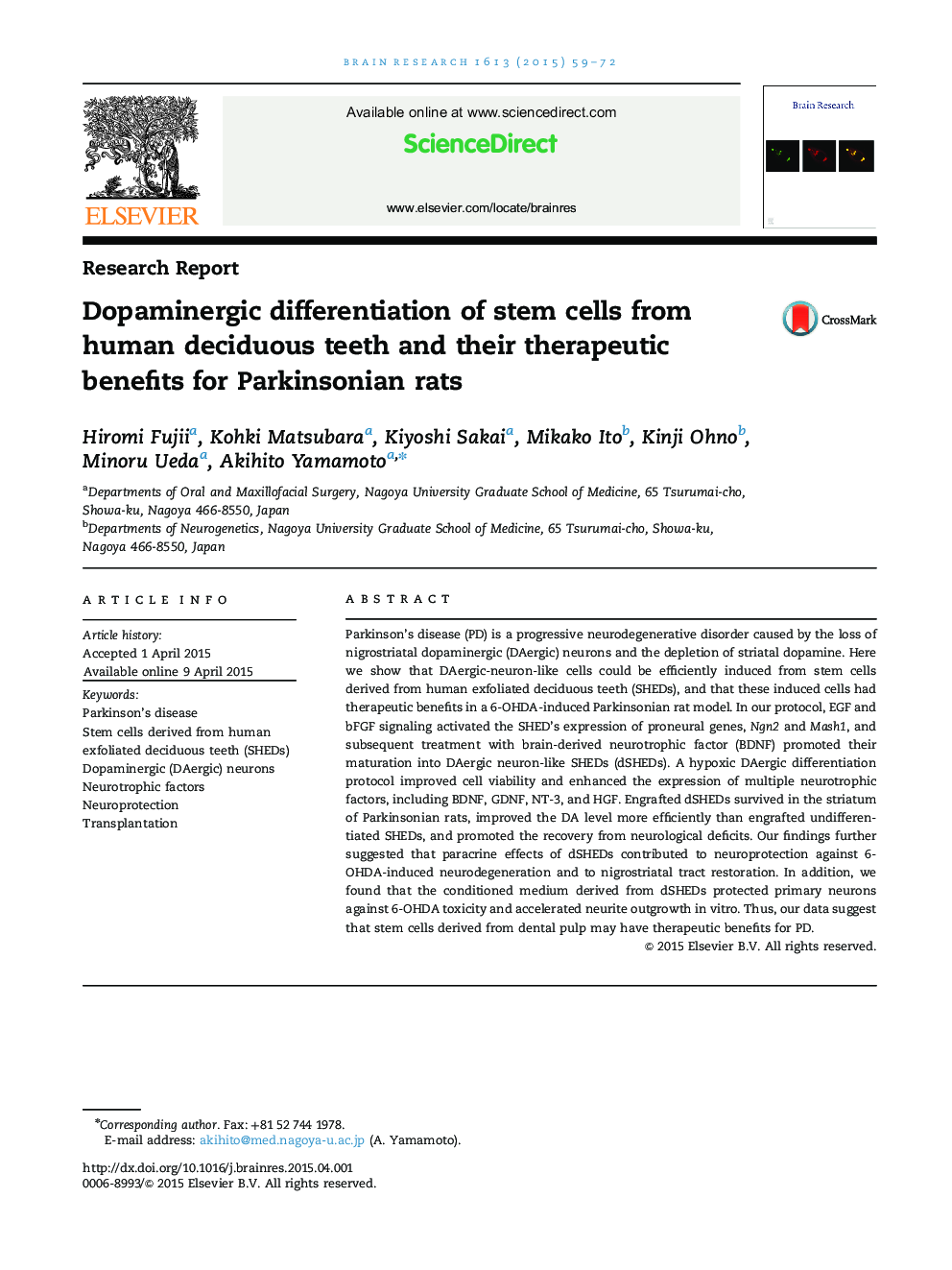| Article ID | Journal | Published Year | Pages | File Type |
|---|---|---|---|---|
| 4323793 | Brain Research | 2015 | 14 Pages |
•SHEDs have high plasticity for differentiating into dopaminergic neuron-like cells (dSHEDs).•Transplanting the dSHEDs promotes neurological recovery in Parkinsonian rats.•dSHEDs strongly preserve endogenous dopaminergic neurons.•dSHEDs restore the striatal innervation of TH-positive fibers.•dSHEDs secrete factors promoting neuronal survival and neurite outgrowth.
Parkinson’s disease (PD) is a progressive neurodegenerative disorder caused by the loss of nigrostriatal dopaminergic (DAergic) neurons and the depletion of striatal dopamine. Here we show that DAergic-neuron-like cells could be efficiently induced from stem cells derived from human exfoliated deciduous teeth (SHEDs), and that these induced cells had therapeutic benefits in a 6-OHDA-induced Parkinsonian rat model. In our protocol, EGF and bFGF signaling activated the SHED’s expression of proneural genes, Ngn2 and Mash1, and subsequent treatment with brain-derived neurotrophic factor (BDNF) promoted their maturation into DAergic neuron-like SHEDs (dSHEDs). A hypoxic DAergic differentiation protocol improved cell viability and enhanced the expression of multiple neurotrophic factors, including BDNF, GDNF, NT-3, and HGF. Engrafted dSHEDs survived in the striatum of Parkinsonian rats, improved the DA level more efficiently than engrafted undifferentiated SHEDs, and promoted the recovery from neurological deficits. Our findings further suggested that paracrine effects of dSHEDs contributed to neuroprotection against 6-OHDA-induced neurodegeneration and to nigrostriatal tract restoration. In addition, we found that the conditioned medium derived from dSHEDs protected primary neurons against 6-OHDA toxicity and accelerated neurite outgrowth in vitro. Thus, our data suggest that stem cells derived from dental pulp may have therapeutic benefits for PD.
